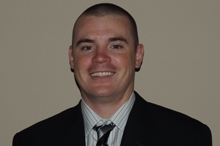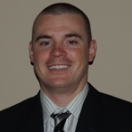

Joe was recognized as a White House Champion of Change in Community Resilience and Preparedness.
My name is Joe McKenna, and I grew up in Boston, Massachusetts, but now call San Marcos, Texas my home. How we think about individual and community preparedness today needs to be comprehensive in nature, and we should strive to engage the entire community in the discussion. Therefore, true preparedness should reflect a whole community approach. This approach includes promoting youth of all ages and abilities to get involved in appropriate preparedness actions and activities. The earlier we instill such behaviors and concepts in our youth, the better prepared our communities will be over time. Often, youth may even have great ideas that adults might never have considered, and thus could influence others in their community through natural innovation and creativity. Throughout history, young people have been a catalyst for change (i.e., seat belts, healthy eating, etc.) and a similar approach can be utilized in preparedness efforts. With youth comprising approximately one-fourth of our nation’s population, the sheer numbers make this population imperative to preparing communities. As such, we should take a vested interest in engaging youth in preparedness efforts.
The mission of the Texas School Safety Center’s Youth Preparedness Camp is to increase emergency preparedness in Texas communities by providing youth with emergency response, action planning, and leadership skills that enhance their capacity to assist their local communities in creating a culture of preparedness. As the coordinator of the Texas School Safety Center’s Youth Preparedness Camp, I have the unique opportunity to interact and support youth as they apply their amazing minds to help increase preparedness in their local communities. Our ultimate goal is to educate and prepare whole communities through their youth. Specifically, we provide trainings on preparedness, disaster response, and leadership. In turn, the youth will return home with the skills and desire to educate and prepare the rest of their local community. The youth deliver and conduct campaigns and activities that raise awareness about local hazards and preparedness practices, but also encourage members of the public to take action and prepare themselves and their families. This model creates a culture of preparedness within the local community that is both all-inclusive and sustainable.
Whether your community is currently active in youth preparedness or not, I encourage you to look to your young people for innovative and creative ways to increase whole community preparedness and utilize their natural talents and skills. After all, we share the communities we live in with our youth, so they too should be involved in preparing our communities for the future.
Joe McKenna is a Research Specialist and the Youth Preparedness Camp Coordinator for the Texas School Safety Center, which is part of Texas State University.


